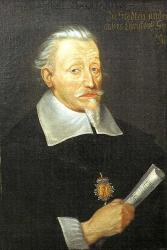Planning worship?
Check out our sister site, ZeteoSearch.org,
for 20+ additional resources related to your search.
- |
User Links
Person Results
Gracia Grindal

b. 1943 Author of "O Clap Your Hands" in Christian Worship Gracia Grindal (b. Powers Lake, ND, 1943). Grindal was educated at Augsburg College, Minneapolis, Minnesota; the University of Arkansas; and Luther-Northwestern Seminary, St. Paul, Minnesota, where she has served since 1984 as a professor of pastoral theology and communications. From 1968 to 1984 she was a professor of English and poet-in-residence at Luther College, Decorah, Iowa. Included in her publications are Sketches Against the Dark (1981), Scandinavian Folksongs (1983), Lessons in Hymnwriting (1986, 1991), We Are One in Christ: Hymns, Paraphrases, and Translations (1996), Good News of Great Joy: Advent Devotions for the Home (1994 with Karen E. Hong), Lina Sandell, the Story of Her Hymns (2001 with John Jansen), and A Revelry of Harvest: New and Selected Poems (2002). She was instrumental in producing the Lutheran Book of Worship (1978) and The United Methodist Hymnal (1989).
Bert Polman
Gracia Grindal
Paul Inwood
b. 1947 Person Name: Paul Inwood, b. 1947 Author (refrain) of "Psalm 47: God Mounts His Throne" in Glory and Praise (3rd. ed.)
Paul Inwood
H. Ricardo Ramirez
Author of "God mounts his throne to shouts of joy" in Church Hymnary (4th ed.)
H. Ricardo Ramirez
Liam Affley
Person Name: LA Composer of "[All peoples, clap your hands]" in Catholic Book of Worship III
Liam Affley
Joseph B. Sullivan
Composer of "[All you peoples, clap your hands]" in One in Faith
Joseph B. Sullivan
Heinrich Schütz

1585 - 1672 Composer of "[O clap your hands, all peoples shout]" in Christian Worship Heinrich Schütz (baptized Oct. 9, 1585-1672) was the greatest German composer of the seventeenth century and the first to reach international prominence. His influence was felt for more than two centuries after his death.
In 1598, after hearing the young Henrich sing, the Landgrave Moritz of Hessen-Kassel began a campaign to have the boy study at Kassel. In 1599, Christoph Schütz took his son to the landgrave’s seat, where he served as a choirboy and pursued his education showing particular facility in Greek, Latin, and Frence. After he lost his treble voice, he set out for the University of Marburg, where he studied law. But under the sponsorship of the landgrave, Heinrich went to Venice (1609) and studied with Giovanni Gabrieli until Gabrieli’s death in 1612. In 1613 he returned to Germany, once again studying law while serving as organist to the landgrave. He was lent to Johann Georg I of Saxony (1614) and subsequently became director of the chapel, a position he held the rest of his life. The untimely death of his wife after six years of marriage (1625) led him to devote himself to the composition of church music. After several petitions Schütz was granted leave to study with Claudio Monteverdi and once again set out for Venice. For much of his life the Thirty Years’ War obstructed his work, and he spent time moving from court to court in Europe, finally settling in Dresden in 1641, where he died.
--The Presbyterian Hymnal Companion, 1993
Heinrich Schütz
Ewald Bash
1924 - 1994 Author of "Clap your hands, all peoples" Ewald J. Bash (Indiana, 1924-- ). A poet and also an occasional writer of folk melodies, his personal interests arose in the era of return to genuine folk music of the early Sixties and continued into the Seventies during the time of turmoil and crisis. His lyrics, set to a Latvian folk song, "Hymn for Those in Captivity," appears in Cantate Domine. He also composed hymns which have appeared in the hymnals of a number of communions. He was part of a folk liturgical movement in the Lutheran Church and contributed much to a development of such moods in an early work, Songs for Today. Certain of his work has also appeared in Jerusalem/Babylon: Handbook for a Christian in the Urban World.
--Ewald J. Bash, DNAH Archives
In a letter from Bash to Mary Louise VanDyke dated 12 January 1987, he states:
"'Hymn for Those in Captivity' was written in the throes of those early days of the Sixties. I actually don't remember how it all happened that well. I was writing a lot of songs. But the melody I had learned from Latvian peoples who came as Displaced Persons from Germany &, of course, Latvia in 1940. She had been the wife of the Latvian ambassador to Russia (they came to my first parish in New Lexington, Ohio. The song in its original words & its translation were hauntingly beautiful:
Who is crying, what lamenting
Sounds so sadly in the night
'Tis the orphan children crying
Bound beneath their master's might.
I also had learned the first verse in Latvian. But Psalm 137 fit the music well and well, the words came. And for the U.S. in the 1960's it felt right; as well as for South Africa and other places today."
--DNAH Archives
Ewald Bash
David T. Koyzis

b. 1955 Person Name: David T Koyzis Author of "Clap Your Hands, All You Peoples of the Earth" in Scripture Song Database
David T. Koyzis
Ugo Nakada
1896 - 1974 Composer of "GI NO TAIYO" in E. A. C. C. Hymnal Ugo Nakada was a Japanese pastor and hymnwriter out of the holiness movement. Son of the Rev. Juji Nakada of the Japanese Holiness Church.
Email to Hymnary
Ugo Nakada


 My Starred Hymns
My Starred Hymns


